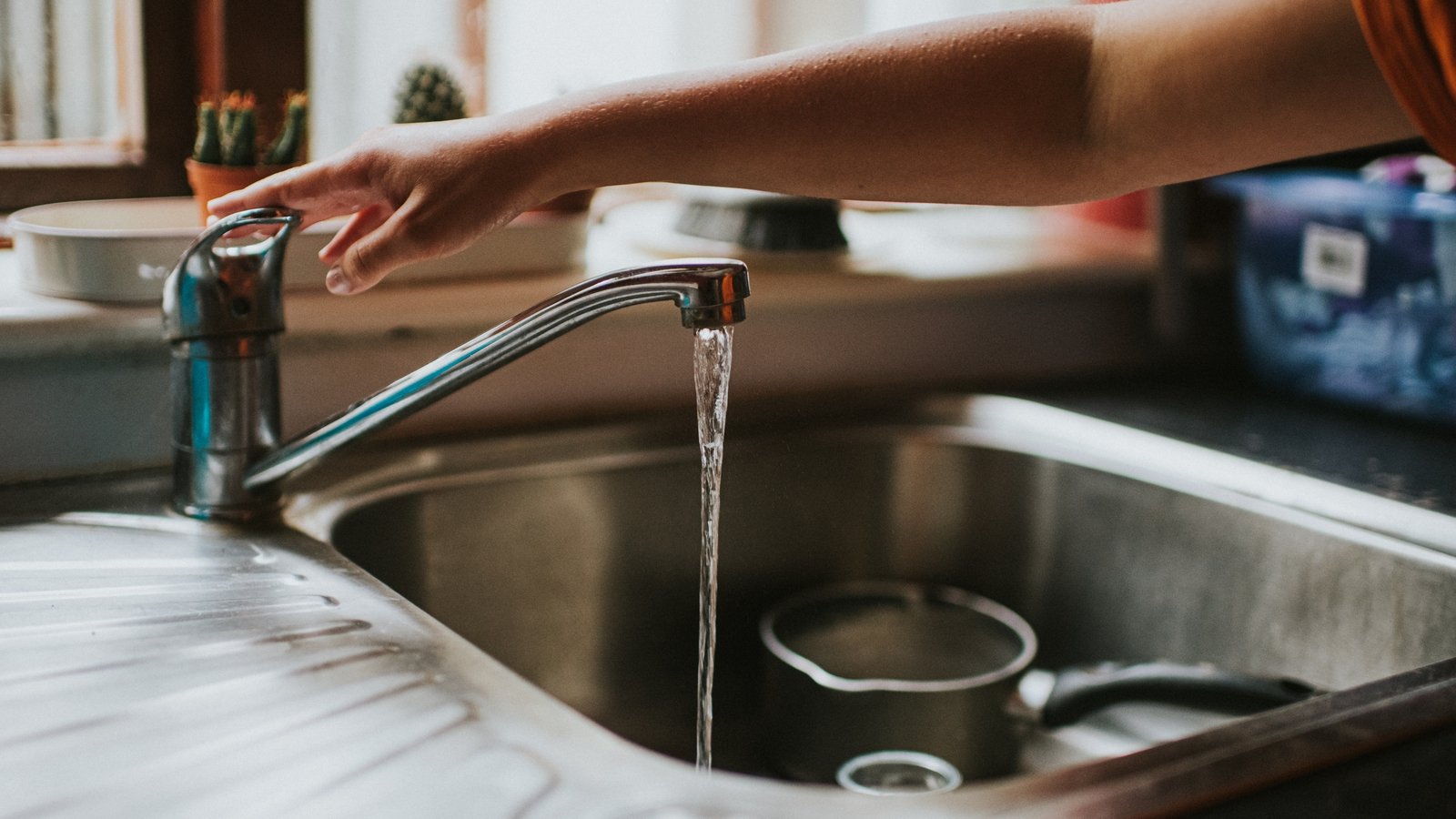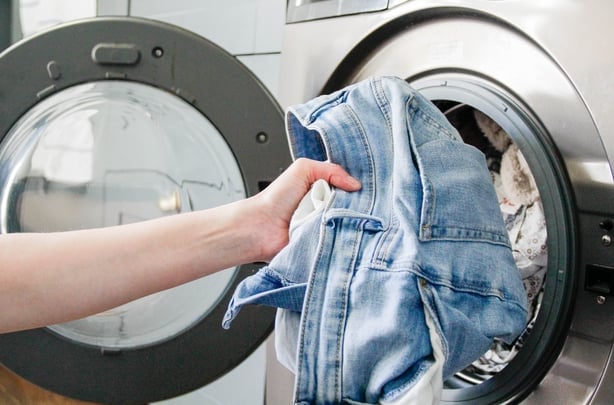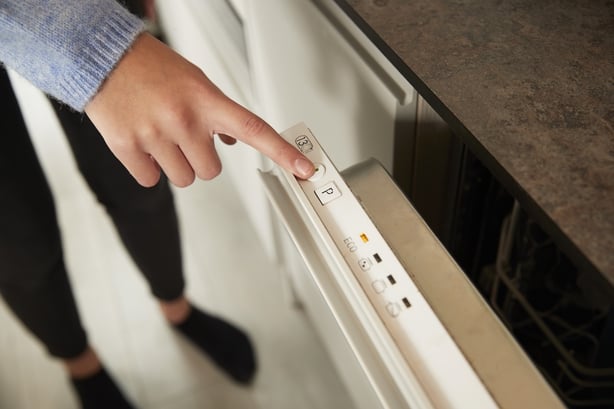Public urged to conserve water amid high Dublin demand

Even though water covers 71% of the planet, the reality is that fresh clean water is one of our most limited natural resources.
Just 1% of the earth’s water is available to us as safe clean drinking water.
Even here in Ireland, where there is a lot of annual rainfall, we are limited in how much water we can take from the environment.
The main reason of course is our lack of water infrastructure and a dire need for public investment in new water supplies.
With demand for water in the Greater Dublin Area now regularly exceeding the amount that can sustainably be supplied daily, Uisce Éireann has been urging the public to help conserve supplies even during winter.
A recent survey by the national Water Forum found that 74% of a nationally representative sample of people agree that water conservation in Ireland needs to be improved.
However, exactly half of those surveyed said they have no idea how much water they actually use, and more than half said they have no idea where their water comes from.
There is no doubt that many of us are using far more water than we really need to in our day-to-day lives.
In fact, 55% of Irish people admitted to wasting water in their household in a recent study by Uisce Éireann.
This lack of public knowledge about water is becoming an increasing serious issue.
Experts are warnings that we are heading for a future with regular hosepipe bans, water restrictions, night-time shutdowns and year-round water conservation appeals in the greater Dublin Area, where no new significant water supply has been developed throughout the past 60 years.
Dr Matt Crowe, Chairperson of the Water Forum says all efforts must be made to provide support and education for the public about how to increase water efficiency in the home.

He says this would have benefits for nature, water, energy cost savings and also help in terms of climate change adaptation.
He is calling for a Government-led strategic approach to water conservation in Ireland, rather than leaving it to appeals from Uisce Éireann to the public to resolve the issue.
“The reason we’re saying that is because one of the main changes we are proposing relates to building regulations,” Dr Crowe said.
“We believe that all new houses should have to be water efficient and well as energy efficient.
“We know already they must be energy efficient. But right now, there’s no guarantee they’re going to be water efficient. That needs to change.”
Read more: Fast action needed amid pressure on water supplies
Uisce Éireann produces about 1.7 billion litres of water for use in homes, businesses, schools, hospitals around the country every day.
There is a lot the public can do to help save water and that small changes in homes and gardens can make a big difference, Uisce Éireann’s Head of Water Operations Margaret Attridge said.
An easy step is to avoid leaving taps or hosepipes running, she added.
Households could also invest in water saving appliances, including water efficient taps and shower heads, which can save thousands of litres of water per year.
She claims one of the best ways to save water in a kitchen is by using a dishwasher.

rinsing them before putting them in the dishwasher (Stock image)
“A full dishwasher on an eco-cycle uses one fifth of the water one would use for washing the same number of dishes in the sink,” Ms Attridge said.
“There are a few caveats or course. For instance, it must be an eco-wash. The dishwasher must be full.
“The plates must not be rinsed before they are put in the dishwasher. Just wipe them clean into your compost bin. Do all this and you will save so much water.
“Also 1.7 million people live in the greater Dublin Area. If one-in-four four of those people shower once a day, and one-in-four of them then decide to spend one minute less in the shower, that would save 5 million litres of water a day.
“So small changes can make a huge difference to the resilience over water supply in the Greater Dublin Area.”
Uisce Éireann’s 13 ways to save water:
- Fix any leaking or dripping taps in the kitchen. Fix a leaking or dripping tap and save up to 150 litres a week. Tighten the washer first. If that does not work you may need to replace it.
- Wait until the washing machine is full before turning it on. Wait until you have a full load before putting on your washing machine. Reducing your washes by one cycle a week can save up to 13 litres of water.
- When thirsty, fill a jug and keep it chilled in the fridge. Fill up a jug with water and keep it in the fridge, rather than letting your tap run cold when you need a drink. You could save six litres of water a day.
- Fill the dishwasher to the brim before turning it on. Fill up your dishwasher before putting it on. Reducing the use of your dishwasher by one cycle a week can save you up to ten litres of water.
- Use a bowl to rinse the fruit or veg clean when prepping food. Save up to 91 litres a week by washing fruit and vegetables in a bowl of fresh water. When you are finished you can use the bowl to water your plants.
- Fix any leaking or dripping taps in the bathroom. Fix a leaking or dripping tap and save up to 150 litres a week. Tighten the washer first. If that does not work you may need to replace it.
- Turn off the tap while brushing your teeth. A running tap uses six litres of water a minute. Turn off the tap while you brush your teeth and you could save 84 litres a week.
- Toilet cistern bag or dual flush toilet. Use a dual flush in the right way and you could save up to 105 litres of water every week.
- Make sure your toilet bowl works properly. Fix a leaking toilet and you could save between 200 and 400 litres of water a day.
- Reducing your shower time by 60 seconds can save up to 15 litres of water. Reduce your shower time and you could save up to 120 litres of water every week.
- Fix any leaking or dripping taps in the garden. Fix a dripping garden tap and you could save up to 250 litres of water a week.
- Use a watering can to water the plants. Use a watering can to water your garden and save an average of 25 litres of water a week.
- Harvest rainwater by installing a water butt. A water butt will collect rainwater from your gutters which you can use to water your garden all summer. Using a water butt could save you an average of 25 litres a week.




